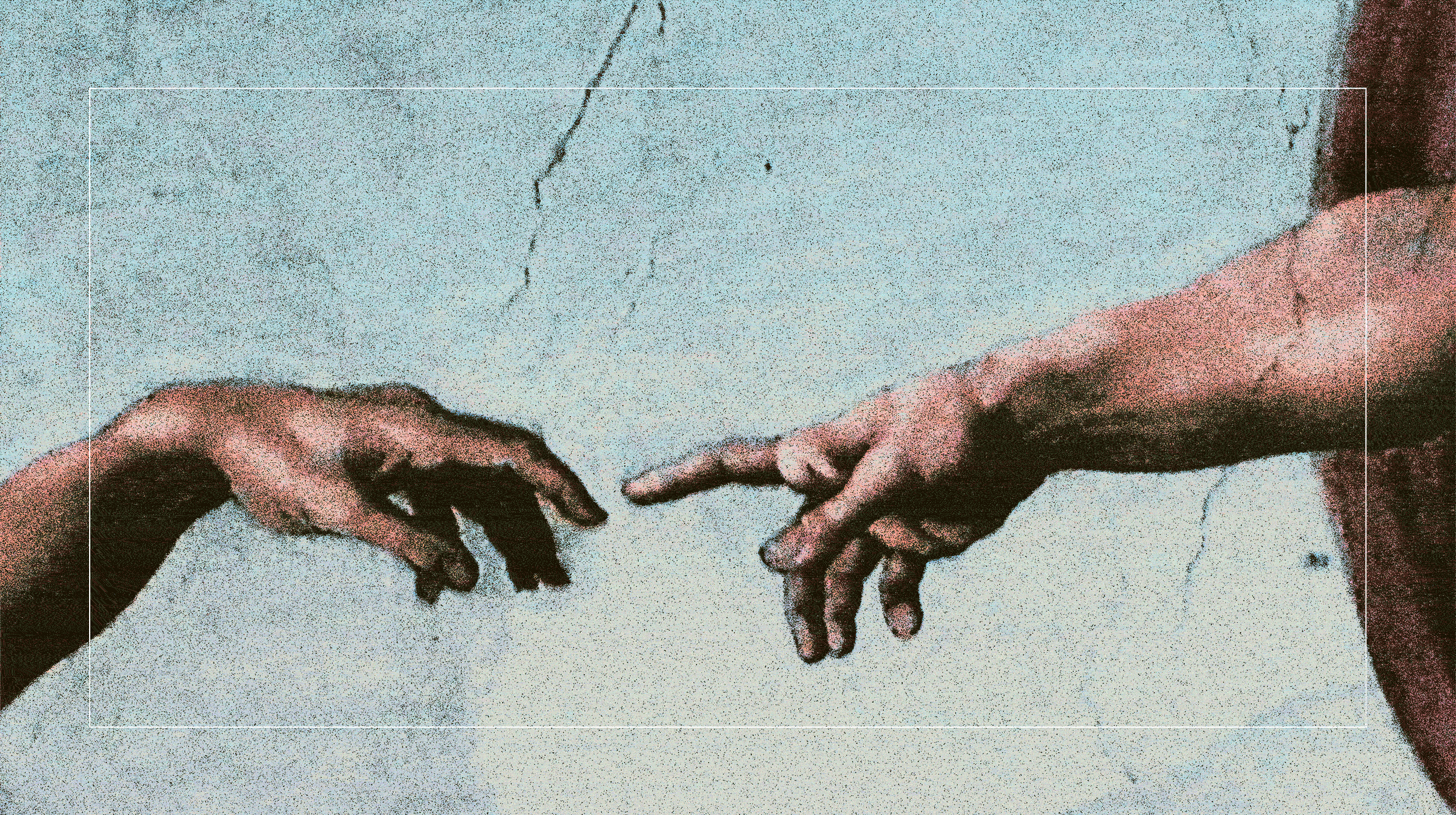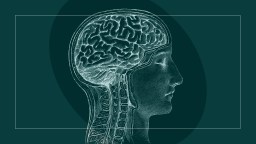Atheism is not as rare or as rational as you think

- For most traits, humans are merely an outlier rather than a genuine exception. This is not true for religion: Contemplating the existence of a god or gods is a uniquely human endeavor.
- Many scientists have sought to explain the evolution of religion. But an equally relevant question is: How did atheism evolve in a religious species?
- One need not be a believer to appreciate the cultural richness and evolutionary usefulness of religion.
You are a member of a very peculiar species. Of all our quirks, the human religious impulse may be our most distinctive one. We build skyscrapers? Big deal, bowerbirds construct ornate decorative nests and they have brains the size of almonds. We live in really big societies? Great, so do ants, whose brains are even tinier. We can do math problems? Wonderful, but so can slime molds, and they don’t even have brains!
Religion: distinctively human
Where humans often appear unique in some regard, a closer look usually shows us to be a mere outlier, rather than a genuine exception. This does not seem to be the case for religion. Most people who have ever lived believe in some sort of god; they are as certain of their gods as of their breath. But not a single organism outside our immediate evolutionary lineage has ever contemplated the existence of a god. Think about that for a moment: as far as we know, every single sentient being in the universe that has ever believed in a god is a member of our odd little species, and almost every member of our species has believed in a god. To scientists interested in evolution and human nature, religion is a puzzle that screams to be solved.
On closer inspection, religion is not an evolutionary puzzle so much as two evolutionary puzzles. First is the puzzle of faith: the puzzle of how Homo sapiens — and Homo sapiens alone — came to be a religious species. Second, there is the puzzle of atheism: how disbelief in gods can exist within an otherwise religious species. If belief in god(s) is truly an evolved human universal, how is it that millions or maybe billions of people today don’t believe in any? How can a defining feature of our species (which religion most definitely is!) not be a defining feature of our entire species?
The puzzle of faith — and atheism
We scientists are increasingly learning that the puzzle of faith cannot be solved without also solving the puzzle of atheism. And as we learn more and more about atheism and nonbelief, they are forcing us to rethink some of our bedrock assumptions about how both belief and disbelief work.
A commonly offered solution to the puzzle of faith is that religion just comes naturally as a sort of cognitive byproduct. A suite of specific mental adaptations helped our ancestors solve recurrent challenges, and these adaptations interact in such a way that religions are just good fits for how we think. We are “born believers,” per the title of a recent book. Religion comes so intuitively and naturally, per this cognitive byproduct view, that atheism is a rare exception and must require cognitive effort to be sustained. In the words of Pascal Boyer, penned in a prominent summary:
“Some form of religious thinking seems to be the path of least resistance for our cognitive systems. By contrast, disbelief is generally the result of deliberate, effortful work against our natural cognitive dispositions — hardly the easiest ideology to propagate.”
This notion that religion comes naturally has proven influential within science and has also attracted surprising support from New Atheist cheerleaders (perhaps because it situates their own rationality and cleverness as a key ingredient in their atheism). But just how rare is atheism?
Atheism is stigmatized but not rare
Within the U.S., about 2-3% of people explicitly identify as atheists. But, to show up as a nonbeliever in polls like this, respondents both have to disbelieve in a god and also be comfortable voicing these doubts to a random pollster. That’s not a given. Atheism is heavily stigmatized, not just in the U.S. but worldwide.
For example, my lab has studies in which we describe a villain engaging in some sort of immoral action — they kick a puppy, or dabble in cannibalism, or experiment with incest. We then subtly gauge participants’ intuitions about the perpetrator. In study after study, our respondents intuitively assume that people doing immoral deeds like these don’t believe in gods. In one study, we described a villain who tortures animals as a child before turning into a full-blown serial killer as an adult, with dismembered bodies buried in the basement. Participants from 13 countries, including even atheist participants in some highly secular countries, intuited that the murderer cannot believe in god(s).
Not only do people readily infer atheism from described immorality, it turns out that they also read immorality into atheism. In a project with Jazmin Brown-Iannuzzi and Steph McKee at the University of Virginia, we used a clever experiment to see how people mentally represent atheists. Think of the experiment as a fancy computer task that acts as a police sketch artist, pulling an image from our participants’ minds. Hundreds of people in the U.S. did this task for us, and these images are the results: one is what they spontaneously think about atheists, the other a spontaneous mental image of a believer. Can you guess which is which?


A separate group of participants, viewing these faces, felt that the atheist composite face (the second one, if it wasn’t clear) was less religious than the other face. But even more than that, they rated the atheist face as less moral, less trustworthy, and more generally hostile and unpleasant.
Results like these — people inferring that serial killers don’t believe in God, or assuming that atheism leaves an indelible stamp of immorality even on people’s faces — are the context in which polls of atheist prevalence exist. Poll respondents might be motivated to conceal their atheism, which would systematically downwardly bias our estimates of global atheist prevalence.
In 2018, Maxine Najle and I estimated how many atheists there are in the U.S. using a task that lets people indirectly indicate their atheism to us, without them having to say it. Using this sneaky indirect measurement technique, our best estimate is that 26% of American adults do not believe in god(s) — more than twice as many as Gallup and Pew estimated at the time. If this underreporting is not unique to the U.S., this means that we have probably been vastly undercounting atheists worldwide.As it turns out, atheism probably isn’t all that rare.
Atheism isn’t just for geniuses
How about the other major claim about atheism made by the byproduct account: Does atheism require cognitive effort? Anecdotally, public atheists posit that intelligence, rationality, and science (all effortful cognitive endeavors) are the root cause of their own atheism. A classic example here would be Richard Dawkins, who credits early reading of Darwin for his atheism, and whose public rhetoric tries to use science as a wedge to drive people from their faith.
Around 2009 or 2010, Ara Norenzayan and I sought to scientifically test the idea that atheism is underpinned by effortful cognitive reflection. In an initial study, we found a correlation whereby folks who are better able to reflectively override their hunches reported being less religious. We also had a bunch of experiments in which we found that people nudged to think more rationally also tended to report lower levels of religious belief. Our eventual paper was accepted for publication in the journal Science, and two other research teams independently published similar studies in other outlets. Our papers attracted widespread news coverage and were widely praised by the New Atheist set. Here was seemingly solid evidence to vindicate their central claim that atheism was all about rationality!
But the plot thickened. Rigorous follow-up studies repeatedly have been unable to produce similar results to our initial experiments. I have now accepted that the experiments in our initial Science paper were fatally flawed, the results no more than false positives. Beyond the experimental failures to replicate, the correlation between rational thinking and atheism turns out to be both weak and fickle across cultures.
Even in the U.S., my team found in a large and nationally representative sample that effortful cognitive reflection doesn’t at all predict atheism among people strongly exposed to religion as kids. The very dynamic posited by New Atheists — of churchbound kids using science and rationality to free themselves from faith’s shackles — could not be found in the most rigorous exploration to date. There is little scientific reason to believe that rationality and science are key causal contributors to atheism in the aggregate. This makes it all the more ironic that public-facing atheists who speak so reverently of science tend to be the most vocal advocates of the faulty notion that rationality is a prime driver of atheism. They’ve got the science wrong.
Religion is no less an evolutionary product than is a raptor or a ribosome, worthy of the same scientific awe. Through the processes of genetic evolution, we have been endowed with minds capable of imagining gods, and through the processes of cultural evolution, we have evolved intricate structures of beliefs and norms that have helped propel our species to greater and greater cooperative heights. The seemingly bizarre religious rituals that many deride as irrational may in fact be cultural evolutionary tricks that help create cooperative societies.
To me, this intricate cultural evolutionary play is infinitely more fascinating and fulfilling than the shallow, wholesale dismissal of religion offered by vocal public atheists. And to appreciate it, all you need to do is open yourself up to the possibility that over the millennia, religions may have survived and thrived in part because they served an evolutionary purpose. Of course, atheists need not subscribe to a given religious faith to appreciate it; one needn’t accept or praise something simply because it was useful in cultural evolution. But everyone — including atheists, which I am — can have a more mature, scientifically literate, and fulfilling relationship with religion if we are open to the possibility that it doesn’t poison everything.





